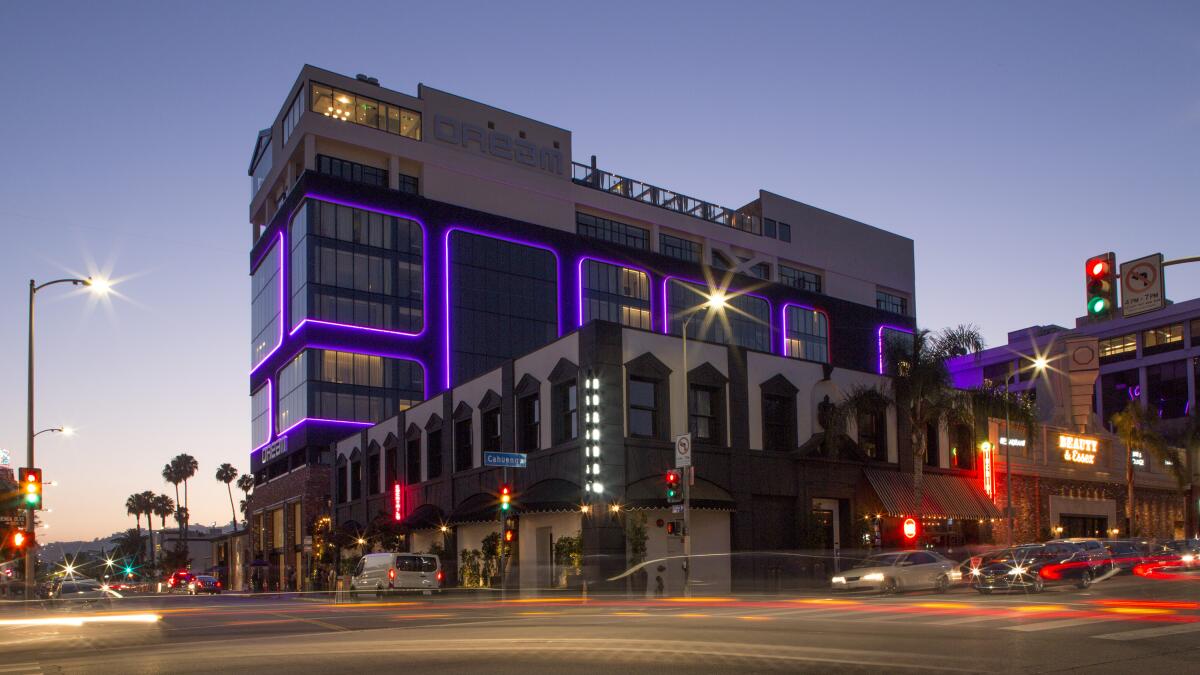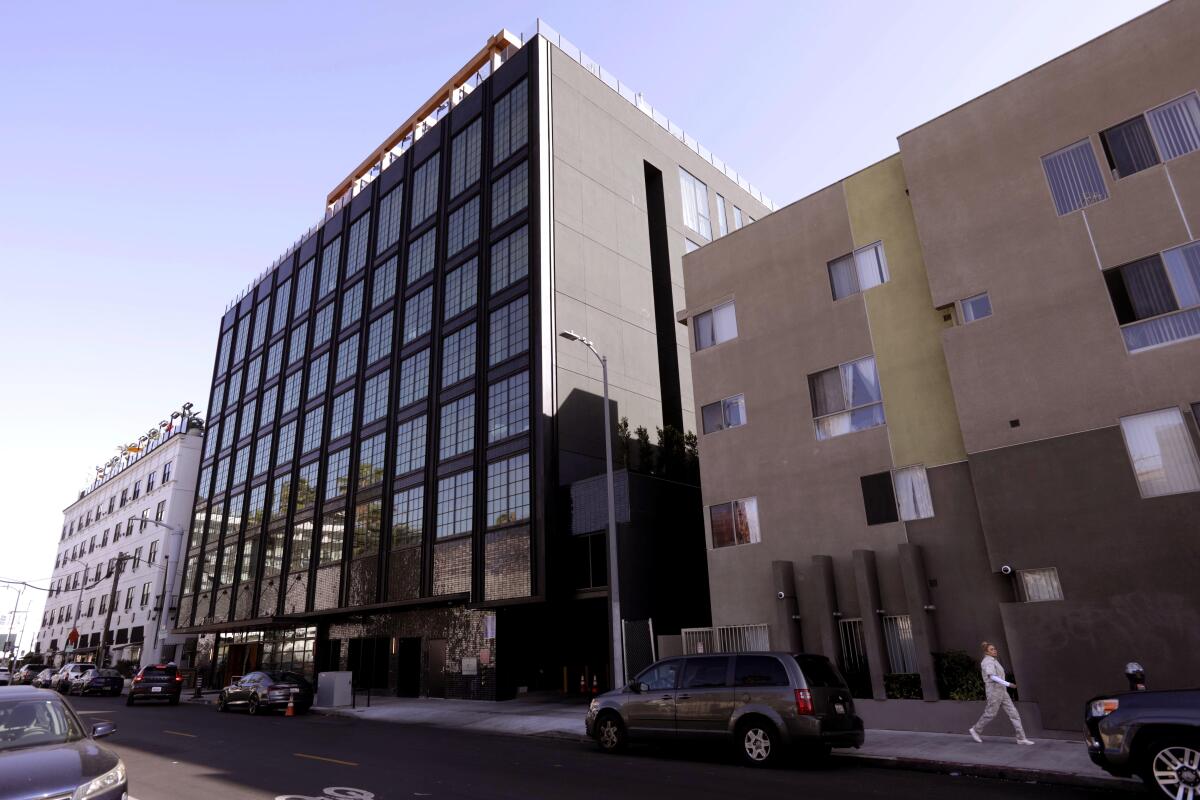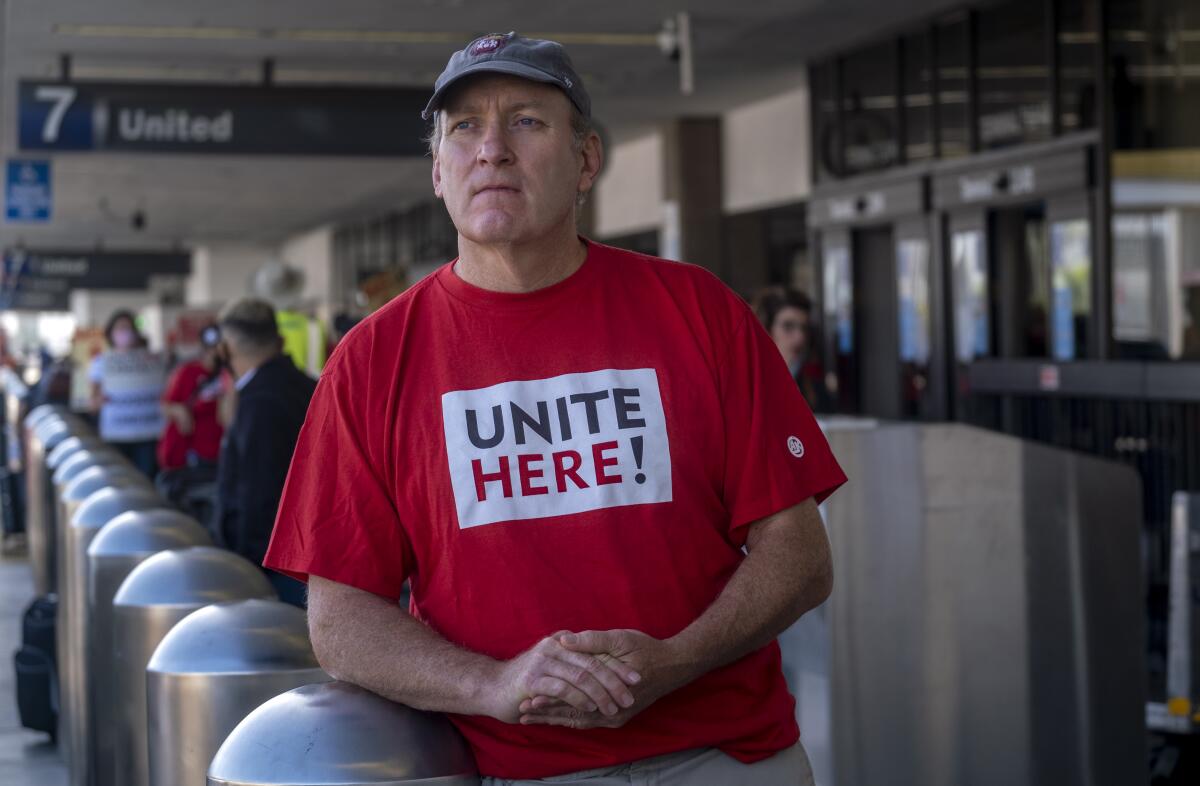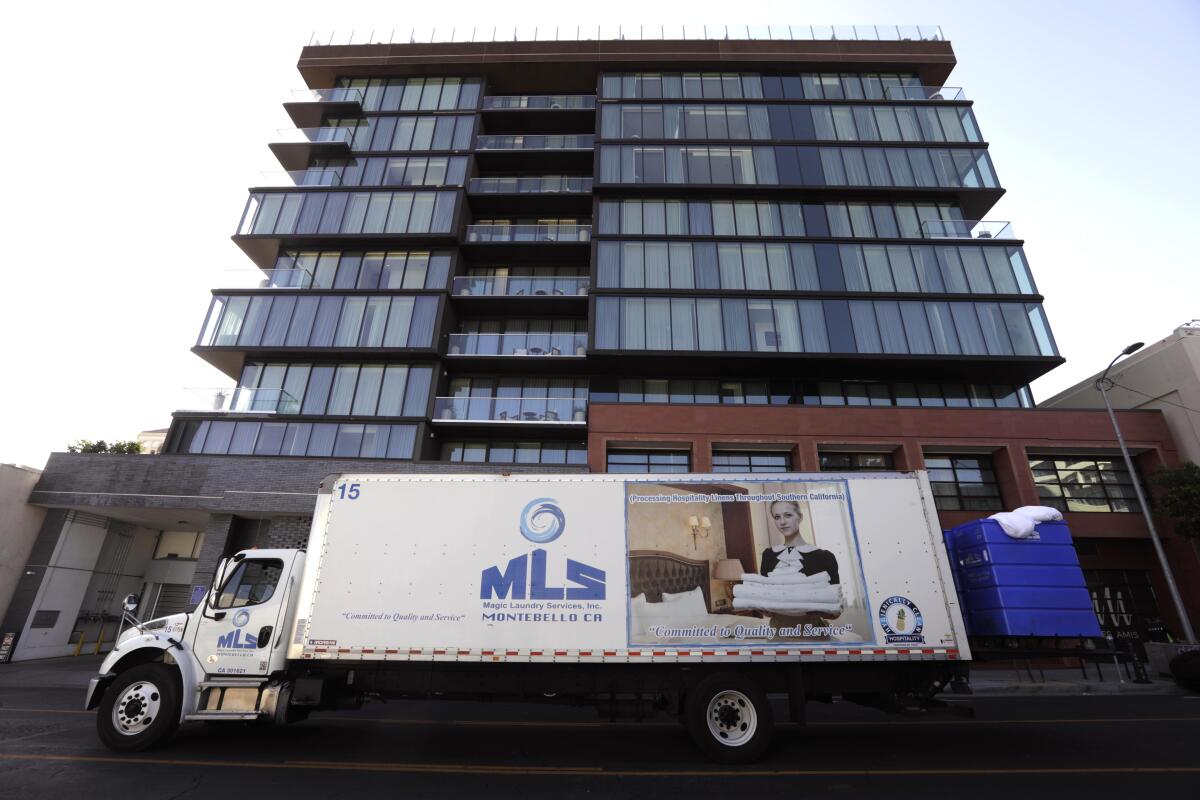Hollywood hotels scrutinized for financing under visa program: ‘Not fair’, say critics

- Share via
In an aging Hollywood neighborhood known for its dive bars, pawn shops and tattoo parlors, three luxury hotels and a private events center opened over the last five years, with the help of millions of dollars from Chinese investors.
The developments — boutique hotels with rooftop pools and hip nightclubs — represented new life for a gritty area a few blocks from Hollywood’s fabled Walk of Fame. They are now mired in a dispute involving a powerful labor union and 16 members of Congress who have asked for a federal inquiry into the project’s financing.
The developer of the Dream Hollywood, Thompson Hollywood and Tommie Hollywood hotels, as well as the Citizen News Hollywood events venue, is fighting back.
“We are not going to cave,” said Grant King, managing partner of Relevant Group. “We didn’t do anything wrong.”
The conflict has revived questions about the administration of EB-5, a 32-year-old federal program that awards visas to foreigners who invest in U.S. projects and create new jobs. The program was used to finance the hotels.
The developer says it has met the program’s requirements for local job creation. It is accusing the union of raising false allegations to “strong arm” the hotels into clearing the way for the union to represent hotel workers, who aren’t unionized.
Union leaders say that the hotels didn’t create enough jobs and that the EB-5 program is unfair to local workers, especially immigrants, who need jobs and an equitable way to gain legal immigration status.

“Our members kill themselves at work and can’t get citizenship,” said Kurt Petersen, co-president of Unite Here Local 11, which represents more than 32,000 workers in hotels, restaurants, airports, sports arenas and convention centers throughout Southern California. “Wealthy people get green cards and it’s just not fair.”
Under EB-5, foreigners who invest a minimum of $500,000 in a U.S. project that creates at least 10 local jobs qualify for a visa. The idea behind the program was to spur investment in the United States. EB-5 surged in popularity in the years after the 2008 financial crisis because local funding dried up, but it was later bogged down by reports of misuse and national security concerns.
Relevant’s three hotel projects were built with about $207 million from 414 Chinese investors, King said.
Unite Here Local 11 joined 16 members of Congress in February to raise questions about that financing. Under scrutiny was whether the investments created the hundreds of permanent jobs, such as hotel housekeepers and busboys, that were intended by the program.
Union leaders and the lawmakers cited statements made by Relevant Group in news articles that one of the hotels, the Dream Hollywood, created 700 jobs when it opened. Based on the funding amount and number of investors participating in the program, it should have generated at least 1,800 jobs, they said.
King said the union and the legislators are not counting hundreds of temporary construction jobs and dozens of positions opened up by increased business activity in the area, such as extra workers added at nearby restaurants to serve the construction crews. The investments created more than 6,600 temporary and permanent jobs for all three hotels and the events center — far more than needed to meet the EB-5 requirements, he said.
In February, 16 Democratic members of Congress wrote to the agency overseeing the program, U.S. Citizenship and Immigration Services, asking for an inquiry into Relevant Group’s financing. The lawmakers included Reps. Lou Correa of Santa Ana, Grace F. Napolitano of Norwalk, Brad Sherman of Northridge and Ted Lieu of Torrance.
In an interview, Correa said the jobs counted by Relevant Group fall “under a gray area” because they were created through a now-expired pilot program within EB-5 that allowed temporary construction positions to be counted toward the job-creation requirement.

U.S. Citizenship and Immigration Services needs to review the financing of the hotels to ensure the program works as it was intended, he said.
“It is a good opportunity to kick the tires and verify that this program has done what it is supposed to do,” Correa said, adding that the members of Congress have not heard a response to their request for an inquiry.
In an email, U.S. Citizenship and Immigration Services declined to answer questions from The Times about the requested inquiry. It said the agency “will respond to Congressional correspondence through official channels and by appropriate representatives at the agency.”
The feud is the latest to raise questions about EB-5, which was created in 1990 to enable U.S. businesses and developers to tap foreign investors, whose money was cheaper than traditional bank loans at the time. The program allows a maximum of 10,000 visas to be authorized each year.
To increase investments, Congress added a pilot program within EB-5 in 1993 — dubbed the regional center program — that allowed investors to pool their money. It also allowed projects to count, in addition to on-site jobs, temporary construction jobs and positions created in nearby businesses that benefit from the foreign investments, such as neighboring coffee shops or sandwich shops that hire more workers during periods of construction in the surrounding area.
Fresh out of Loyola Marymount University in Los Angeles with a degree in applied information management systems, Ishaan Khanna landed an internship at Ticketmaster.com.
EB-5 became so popular that in 2014 the State Department announced it had run out of its allotment of visas for the first time in the program’s history and that no more visas would be issued until the following year.
The pilot program was renewed by Congress every five years, but it expired last year. Congress has approved legislation that would reauthorize and attempt to address some of the flaws in the program as part of a larger spending bill. President Biden is expected to sign the bill.
The program has sparked controversy because some developers have fraudulently taken the foreign investments and failed to develop the projects and the jobs that were promised, said Stephen Yale-Loehr, a Cornell University professor of immigration law. It is also a complicated program that “is somewhat opaque to the average person because they don’t see any direct jobs created,” he added.
Last year, a judge sentenced a 60-year-old Maryland man and an ex-White House military aide each to 102 months in prison for running a scheme to defraud investors by taking foreign money that was advertised to be used to help rebuild New Orleans after Hurricane Katrina. Instead, prosecutors found that the two men used the money on themselves, with some of the funds used to buy vacation and rental properties.
Jean Lantz Reisz, an adjunct assistant professor of law at USC, said the investors have almost no control over how their money is used and the federal program managers don’t have enough resources to closely oversee each project.
“It’s been very subjectable to fraud,” she said.

In 2020, Republican members of the House Judiciary Committee called for a review of the EB-5 program, saying they fear the Chinese Communist Party may be abusing it to get its members into the country.
“We think that the program is not fair and needs repair,” said Petersen of Unite Here.
In a letter to the 16 members of Congress last month, Relevant Group’s King said it appeared they had misunderstood the requirements of the EB-5 regional center pilot and reiterated that the project had been approved by U.S. Citizenship and Immigration Services. The agency has issued permanent visas for 25 of the investors, his letter said.
“We believe that the information contained in your letter may reflect a fundamental misunderstanding that only direct jobs can be counted under the EB-5 program, which would not allow any jobs from construction of projects or other economic activity to be counted,” the letter said.
In an interview, King accused Unite Here of instigating the inquiry as a way to pressure the hotels to clear the way for the union to organize the hotel workers.
“They are trying to leverage us to unionize the hotels,” he said. “We are not unique. This is how they do their business.”
Unite Here has clashed with Relevant Group before. In August 2021, it issued a news release accusing the developer of reneging on a labor agreement with the group.
Petersen declined to discuss whether the union had been attempting to organize the Relevant Group hotels. He said the dispute is not about unionizing workers but about a program that allows wealthy foreigners to qualify for green cards while hardworking immigrants who can’t afford to make a $500,000 investment struggle to gain legal immigration status.
More to Read
Inside the business of entertainment
The Wide Shot brings you news, analysis and insights on everything from streaming wars to production — and what it all means for the future.
You may occasionally receive promotional content from the Los Angeles Times.












